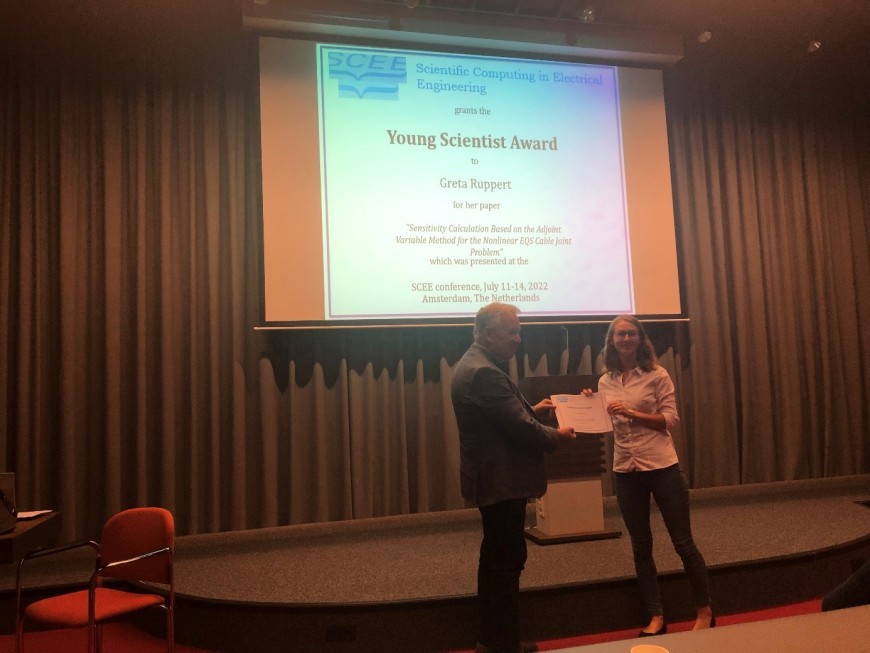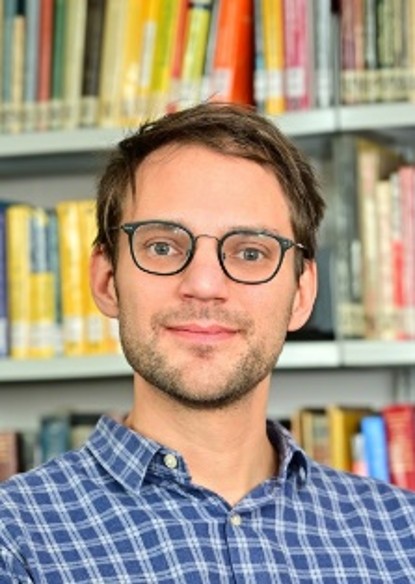Award for Greta Ruppert
2022/08/31

Scientist Greta Ruppert from the Quince research group at the TEMF Institute received the Young Scientist Award at the SCEE conference for her research in the field of high-voltage equipment simulation.
The Conference on Scientific Computing in Electrical Engineering (SCEE) celebrated its 25th anniversary in Amsterdam this July. Every two years, the long-established conference gives scientists the opportunity to present the latest research results in the field of electromagnetic simulation. The organisers of the four-day conference place particular emphasis on promoting young scientists and therefore grant the “Young Scientist Award”, which was awarded to Greta Ruppert this year. Greta Ruppert is a research associate in the research group “Quasistatics in Computational Engineering (QuinCE)” led by Dr.-Ing. Yvonne Späck-Leigsnering at the Institute for Particle Acceleration and Electromagnetic Fields (TEMF) of Prof. Dr. Herbert De Gersem. Ms Ruppert is researching simulation methods that contribute to a better understanding and further development of insulation systems.
Complex insulation systems are essential components of power engineering applications, such as in high-voltage DC cables or electrical machines. They separate different potentials, must dissipate heat losses to the environment and protect electrical equipment against external influences. However, a systematic design of the insulation material properties and the geometric arrangement is often impossible due to the very large number of design parameters. In her work, Greta Ruppert developed an efficient approach for the sensitivity calculation of transient nonlinear electroquasistatic problems with many design parameters. With the help of the adjoint method, she is able to calculate the sensitivities of complex application examples, such as a cable joint, with a computational effort that is almost independent of the number of design parameters. This is an important ingredient for the gradient-based optimisation of power engineering components.
Greta Ruppert's work is supported by the joint DFG/FWF Collaborative Research Centre CREATOR (CRC – TRR 361/F90) at TU Darmstadt, TU Graz and JKU Linz and the Graduate School of Computational Engineering at TU Darmstadt.
